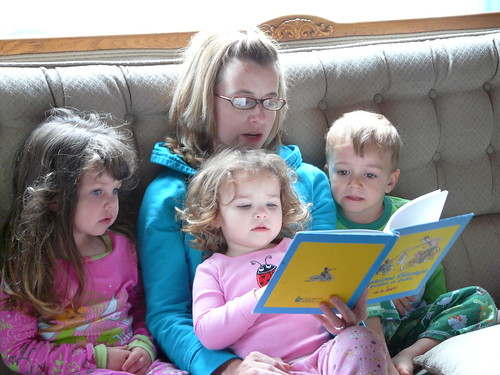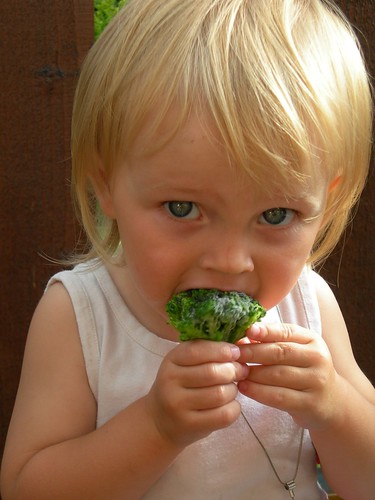 |
| Image credit photogramma1 on Flickr |
Some of my best childhood memories are of listening to my mother make up stories. It was only natural to me to start using them with my children. Most of us tend to think of stories as being nothing more than entertainment. But they are also a fun part of our parenting toolbox. Jesus was a storyteller. The Bible is made up of stories. Stories are a wonderful way to communicate Truth and encourage connection.
Whether you are two, twenty, forty, sixty or ninety, one of our deepest needs is to feel understood. Often children resort to meltdowns because they have no other way to fully express the depth of their hurt, frustration or anger. They are compelled to show us exactly how serious and intense the feelings are. Stories can be a great way to show that we get it.
Stories are also a powerful teaching tool. Most of us tune out a boring list of instructions. But in an exciting story, it is easy to absorb and remember how a character responded to a situation. I want to clarify that this is not like some of the old fashioned morality tales that had a heavy handed punishment of bad behavior actions and simplistic reward of positive behavior. The goal is not to scare our kids (these aren't horror stories!) or to alienate them by showing a disregard for their feelings. But giving positive role models will provide them with ways (or even scripts) to help handle similar situations.
The number one tip for story telling is to be a good listener. As you validate and reflect, and allow them to tell their own stories they will be able to gain perspective for their own situations and acquire new coping tools of their own.
When my oldest daughter would have a meltdown, I learned to sit next to her and quietly begin a story about another little girl in a similar situation. It was a delicate balance to get the same emotions with enough differences in detail to make it clearly a story. Sometimes she would correct me on details, and I would welcome that as a way for her to share her feelings with words.
The most beautiful example that I have seen of this type of storytelling is by Crystal Lutton, in her article Words as Magic. Her story here with her four year old who was upset with his little sister is a fabulous template for using stories as a discipline tool. Stories can help children feel connected and understood, and when that happens, a surprising number of problems disappear.
And of course, it isn't just for "problem issues". Stories are always a way to communicate and tie our hearts closer together.
As much as I love story telling, in the moment, sometimes I am so tired or preoccupied that it seems difficult to get in the groove. These are my favorite tips for coming up with stories my kidlets will love.
Have you ever used stories to diffuse a rough moment, encourage or teach your child, or just to connect? I would love to hear about how you use them as part of your GD toolbox!
And of course, it isn't just for "problem issues". Stories are always a way to communicate and tie our hearts closer together.
As much as I love story telling, in the moment, sometimes I am so tired or preoccupied that it seems difficult to get in the groove. These are my favorite tips for coming up with stories my kidlets will love.
Have you ever used stories to diffuse a rough moment, encourage or teach your child, or just to connect? I would love to hear about how you use them as part of your GD toolbox!
***********
![[4/365] Handy Man](http://farm6.static.flickr.com/5086/5326211358_693c15804a.jpg) |
| Image credit goaliej54 on Flickr |
Looking for more practical tips? Check out my favorite post from the Hippie Housewife on The Hows of Discipline (and read through all the comments!), Pearl in Oyster's 52 Tool Cards series and Aha! Parenting's blog. Do you need inspiration and a reminder of why and how to do this? Read Emerging Mummy's Practices of Mothering and Positive Parenting: Toddlers and Beyond. If you have other great resources or ideas, please add them in the comments.





